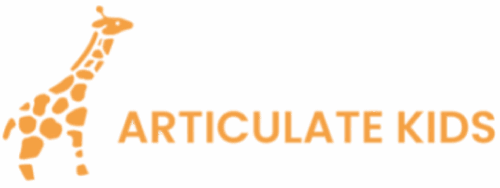Stuttering
Stuttering, stammering and dysfluency are terms for the same disorder.
As children develop language skills, they often exhibit what’s called ‘normal non-fluency’, which is an interruption in the flow of speech. For example, most children from 18 months to 5 years old stumble over words, repeat certain syllables, stutter or make no sound for certain letters and syllables. These non-fluencies usually disappear with age.
Stuttering versus Normal non-fluency
How can we tell if your child’s speech dysfluency is a normal part of the growth and development process or if he or she is developing a stutter? Stuttering does more than just impact the flow of language and words; it also leads to certain behaviours that disrupt speech patterns. Every child is different, and not all have the same behavioural patterns, but some things to watch for include:
- Prolonging part of a word or an entire word
- Frequent repetition of sounds three or more times
- Consistent use of “so” or “um” before starting a sentence
- Avoiding a specific word or situations that require talking
- Fear or anxiety in the face as the child anticipates saying a word
- A rise in pitch related to certain sounds
- Increased speed of speech
- Tremors, tension or struggle in the lip, eye, cheek, throat, chin or chest muscles while speaking
- No airflow or voice when attempting to speak as the child ‘blocks’ certain words
Causes of Stuttering
As with many other developmental conditions a variety of factors contribute to stuttering. Some of those include:
- Interpersonal stress
- Difficulty with the timing of oral motor (lips, tongue, jaw) and respiratory muscles
- Poor fine motor coordination
- Stressful, disturbing, unexpected events
- A difference in how the brain processes language
- Increased or high activity level
- Rapid speech rate
- Genetics
Stuttering is not contagious and not something your child will develop if a playmate stutters. However, genetics do play a role, around 60% of children that stutter have a close family member with a stutter.
If your child is stuttering, it’s time to seek professional help and have a speech and langue assessment. We would advise against a wait and see approach.
- Don’t interrupt them or make them start over
- Don’t always expect them to speak correctly or precisely
- Practice good sleep hygiene
- Avoid corrections and criticisms of your child’s speech
- Always keep eye contact and try to give them your full attention when your child is speaking
- Allow them to finish their sentences and thoughts before jumping in.
Hulya has developed a specialist video for parents on how to identify and help a stutter, for children aged 2-6.
- Proven expertise. Hulya has been a specialist in childhood stuttering since 2002 and has worked with children for over twenty years. At Articulate, we have the expertise to ensure accurate and effective understanding and treatment of your child’s communication difficulty. Hulya’s ‘curative’ success rate of treating early childhood stuttering is exceptional. In other words, our treatment methods work to cure the stutter rather than ‘manage’ it. This gives your child the chance to become totally fluent and continue their childhood not knowing they ever had a stutter, eliminating any possible on-going psychological impact a persisting stutter may have caused. We use a combination of approaches including Parent Child Interaction and The Lidcombe Method.
- Proven Assessment. Our exceptional ability to evaluate your child’s fluency and related difficulties affecting their development, for example, hearing, processing of speech sounds, facial muscular development, praxis of speech motor movements, attention difficulties, play skills, social interaction, behaviour and more enables us to plan and treat your child’s communication, with outstanding results. At Articulate, it’s not just about the child’s stuttering but a comprehensive approach to their communication and behaviour. After all, all behaviour is telling us something, it is a form of communication.
- Passionate Professionals – Proven Results. We really care about each child’s communication and want to help them achieve the very best results in the least number of sessions. Our expertise, energy and passion combined with current evidence-based practice achieve measurable results which often exceed client expectations.
- Best Healthcare Providers. Twenty years of working in the Healthcare Sector – we are part of a professional network of exceptional children’s specialists, doctors and therapists who can provide additional assessment or treatment that your child may need.
- Hulya Mehmet is one of a select group of Speech and Language Therapists who is a BUPA Registered Provider. BUPA has extremely stringent criteria and is considered the ‘gold-standard’ in Healthcare.
- Family and child-centred. We understand that your child is at the centre of your Universe. Every assessment and therapy session is bespoke and tailored for the needs of your child’s specific communication needs.
We’re on Your Team. We provide an incredible amount of off-site support for parents, between sessions, we are never more than a text message away from providing help.

